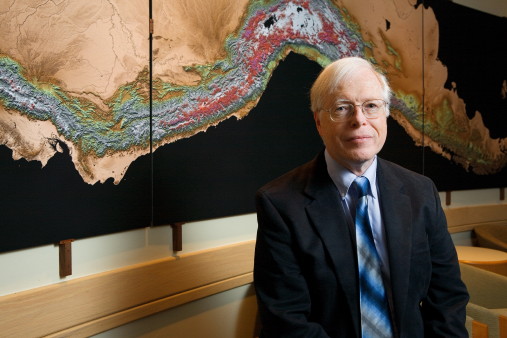VIEWPOINT
Faculty: The next frontier for diversity

Richard Allmendinger, associate dean for diversity, faculty development and mentoring for the College of Engineering.
When I began teaching as a professor in the College of Engineering more than 25 years ago, diversity was – to the extent that it was thought of at all – something that we did for the underprivileged, because it was "the right thing to do." Qualified high school graduates, Cornell's ultimate pipeline, were plentiful, and the vast majority were white. The College of Engineering's faculty had one tenured female professor, and the undergraduate population was overwhelmingly male.
My, how times change! Today, the number of white high school graduates nationwide is declining while non-white student numbers continue to increase steadily, a trend that is expected to put the two groups at parity by early next decade. The college's undergraduate population is already less than 50 percent white and is 33 percent female. This increasing heterogeneity – diversity – brings tremendous strength. As a 2007 Harvard Business Review article put it, "Radical innovations often happen at the intersections of disciplines ... The more diverse the problem solving population, the more likely a problem is to be solved." So, the question becomes: How do modern research universities like Cornell leverage the strength inherent in an increasingly diverse pipeline?
In 2004, the College of Engineering, under the leadership of then-Dean, now Provost Kent Fuchs and Associate Dean for Diversity Zellman Warhaft, devised a new model for delivering diversity programs. We refer to this model as vertically and horizontally integrated: vertically, because a single office (Diversity Programs in Engineering, or DPE) handles all diversity issues from high school outreach to junior faculty mentoring. DPE accomplishes these tasks through strategic alliances with partners across campus. This vertical integration allows us to leverage role models across all levels with programs in structured peer mentoring, professional development and recruiting, which are open to all students.
We are also horizontally integrated into the fabric of the college rather than existing in a silo in the corner. The associate dean for diversity manages all tenure and promotion cases in the college, not just those of women and minority faculty. DPE leverages the faculty's natural good intentions and enlightened self-interest by helping all faculty deliver the "broader impacts" that have become a required part of proposals for federal grants and contracts. We help to enable the success of women and minority professors by advising student organizations so that the faculty can maximize their impact with the students while minimizing their time commitment. After all, the best thing that women and minority faculty can do for diversity is to get tenure.
Finally, DPE is entrepreneurial, raising significant funds to support its programs from corporate and government sponsors, and in partnership with the Graduate School, managing more than $1 million per year in graduate fellowships for minority students who, like minority and women faculty, have become highly sought after by our peer institutions. This is money well spent: the Cornell Sloan Minority Fellowship Program, one of the largest in the country, has a Ph.D. retention and completion rate of 88 percent, which is significantly higher than that for any other demographic group, white or non-white, male or female, in engineering-related disciplines.
The next frontier for diversity, then, is the faculty. Faculty of my generation developed our teaching and mentoring skills with a much more homogeneous student body. We find ourselves almost literally and seemingly quite suddenly in a new, unfamiliar multicultural world, and yet we are the single biggest factor in our students' academic success or failure. More importantly, still, for Cornell's future, the university will replace 30-50 percent of its faculty in the next decade. As Lance Collins, dean of the College of Engineering, has said: "If we are not successful at diversifying the faculty in the next decade, it will be 30-40 years before we have another opportunity." If that happens, Cornell will be poorly prepared to compete in the coming demographic landscape. As a young professor, I did not anticipate how radically the student body would change during my tenure. Cornell leaders today are well aware of the opportunities to be leveraged in the future, and the risks if we fail to do so.
Richard W. Allmendinger is associate dean for diversity, faculty development and mentoring for Cornell's College of Engineering.